
GNOME 3.20 'Delhi' Linux desktop environment is here, and it looks amazing
One of the great things about Linux-based operating systems is the ability to change the user interface by way of desktop environment. If you like Ubuntu, for instance, but don't like Unity, you can choose an alternative such as KDE, Xfce, or GNOME, to name a few.
While GNOME 3x was initially quite controversial for its abrupt design change from 2x, it has evolved into something quite remarkable -- my favorite such DE. Actually, GNOME 3 is much more than a pretty UI -- it is a design philosophy and suite of useful programs. Today, it reaches a major milestone with 3.20. It features many enhancements, such as improved Wayland support.

Red Hat proves open source is big business -- posts $2.05bn yearly revenue
Open source is big business. To quantify and define "big business", how about I throw out a number -- $2,000,000,000. That is a lot of zeros! But what does it represent?
It is a figure that Red Hat has surpassed for its 2015 earnings, as it just posted revenue of $2.05 billion for last year. This makes it the first-ever open source software company to ever meet or exceed $2 billion in revenue in a year.

Google kills Chrome app launcher for Microsoft Windows, Apple OS X, and Linux
During the Windows 8 era, I was very worried about that operating system -- the UI and design choices were troubling. Luckily, as a longtime Linux user, I was not tied to any Microsoft OS. Unfortunately for some consumers, Linux-based operating systems can be difficult to install and use, while Mac computers are very expensive. Chrome OS and the inexpensive Chromebooks swooped in to save the day.
For those that stuck it out with Windows, or used other desktop operating systems, Google introduced a Chrome OS-like launcher -- the unimaginatively named Chrome app launcher. It allows Windows, Mac, and Linux users to launch Chrome apps from within their OS' native UI -- it sort of felt like Chrome OS running inside of them. Today, Google kills this project.

ShareByLink is a signup-free file sharing service
ShareByLinkShareByLink is an open-source file sharing service and application for Windows, Linux and Mac.
The package is all about simplicity. There’s no registration, no account to create, nothing to set up: just install the program, then right-click a file and select "Share file(s) online...".

Snowden: I couldn’t trust Microsoft so I used free software like Tor, Tails and Debian
At the Free Software Foundation's LibrePlanet 2016 conference, Edward Snowden credited free software with enabling him to blow the whistle about government surveillance. Speaking via video link from Russia, the former NSA contractor said that "what happened in 2013 couldn't have happened without free software".
But as well as indicating his preference for free, open source software, Snowden revealed that he refused to use Microsoft software because he "couldn't be sure" that there weren't backdoors built in.

OS X and Linux threaten Windows' dominance in developer market
OS X and Linux are nowhere near as popular as Windows when we look at the PC market as a whole, but the two platforms are actually extremely popular with a certain crowd. According to a StackOverflow survey, 26.2 percent of developers use Apple's Mac operating system, while distributions based on the open-source kernel are not that far behind, having a combined 21.7 percent usage share.
This may come as a bit of a shock, but, yes, OS X and Linux are nearly as popular as Windows among developers. In fact, according to StackOverflow, "If OS adoption rates hold steady, by next year's survey fewer than 50 percent of developers may be using Windows" -- and, obviously, OS X and Linux will come out even more popular in the process.

The Linux Foundation announces free 'Intro to Cloud Infrastructure Technologies' edX course
One of the most important things any human can do is learn. Keeping your mind sharp and active is very healthy. While formal education, such as college, is a great investment in yourself, it is understandably too expensive for many. While I cherish my degree, I don't love my monthly student loan payment.
Luckily for current learners, massive open online courses are becoming increasingly popular. While these MOOCs may not carry the same panache as a university diploma, they can enable you to learn new things for free. Today, the Linux Foundation announces the totally free 'Intro to Cloud Infrastructure Technologies' course. This will be offered through the reputable edX.org.

Telegram gets major 'Supergroups' update
When it comes to cross-platform chat, I used to be a huge proponent of Skype. Since Microsoft's offering is on a number of platforms, it made sense. Unfortunately, the company didn't keep up with quality, letting Skype get stale. Even worse, it has seemingly abandoned its Linux development, making it a non-starter for many.
Telegram is emerging as one of the best cross-platform chat solutions, being available for Windows, Android, iOS, Ubuntu, etc. Best of all, it is constantly being updated. It is beautiful and clearly cared for. Not to mention, it offers encryption -- something very important in today's security climate. Today, one of its killer features, Supergroups, gets a major upgrade. Yes, Telegram is getting even better.
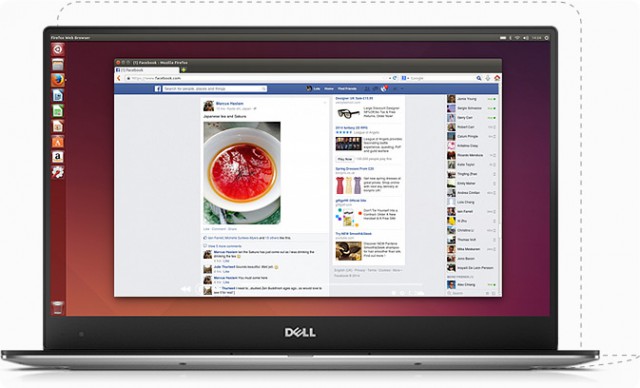
Dell releases new XPS 13 Developer Edition, launches Linux-based Precision laptops worldwide
On the laptop side, Dell may be best known for its Windows devices, but, as some of you may already know, it also offers some killer Linux-based alternatives for prosumers. It all started out nearly four years ago with Project Sputnik, which led to the release of the first-gen XPS 13 Developer Edition, a Ubuntu-flavored version of the popular ultrabook, in late-2012.
Fast forward to today and Project Sputnik is more than just a one device effort, as Dell has expanded the reach of the program to also include some of its professional-grade laptops. Now, the company steps it up a notch by introducing the Intel Skylake refresh of XPS 13 Developer Edition, and making the Ubuntu-toting Precision laptops available worldwide.

Linux Mint updates password policy after getting hacked and failing its users
Linux Mint is a good operating system. The problem, however, is that it really doesn't need to exist. Mint is based on Ubuntu, which is a wonderful OS on its own. Ultimately, the biggest reason for Mint's existence is the Cinnamon desktop environment, and that is certainly no reason for an entirely new OS. One of the things keeping Linux behind on the desktop is the sheer number of unnecessary distributions, such as Mint, but I digress.
When Linux Mint forums and ISOs were compromised, many of its users felt betrayed. After all, Linux is supposed to be safe and secure -- this hack was a major blemish to the community overall. Of course, this is unfair -- the kernel was not hacked, only Mint's servers. Today, as a reactionary response to the hack, Mint is changing password policies.
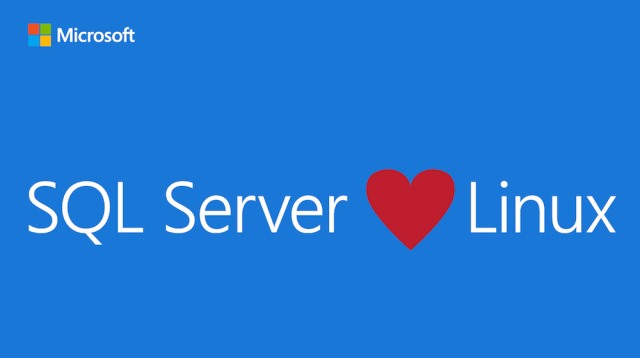
Microsoft brings SQL Server to Linux
The new Microsoft has placed an increased importance on the cloud, and with other companies following suit, reliance on server solutions has increased. Today the company announces that it is bringing SQL Server to Linux.
Both cloud and on-premises versions will be available, and the news has been welcomed by the likes of Red Hat and Canonical. Although the Linux port of SQL Server is not due to make an appearance until the middle of next year, a private preview version is being made available to testers from today.
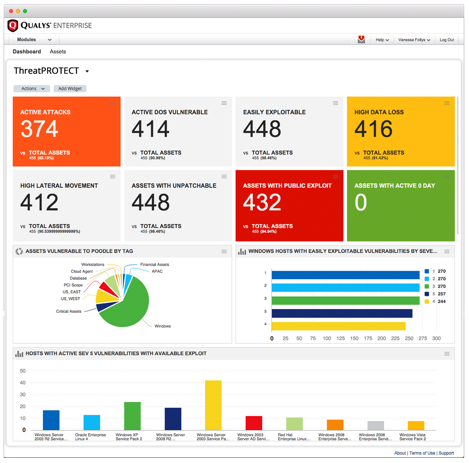
New service helps organizations visualize and prioritize security threats
Active vulnerabilities can present a serious threat to organizations, which is why many are turning to intelligence solutions to spot and manage security issues.
Cloud-based security and compliance specialist Qualys is announcing a new service as part of its Cloud Platform. Called Qualys ThreatPROTECT, it provides customers with an interactive dashboard to help them understand security threats at-a-glance.

New platform offers endpoint protection for Linux servers
Most of the internet is powered by Linux servers, so it's not surprising that they’re increasingly a target for attack. In particular recent attacks have focussed on using compromised systems to distribute malware to other systems.
Many Linux systems rely on traditional signature-based threat detection which leaves them vulnerable to zero-day attacks. Endpoint security company SentinelOne is announcing a new solution aimed at protecting enterprise data centers and cloud providers from emerging threats that target Linux servers.
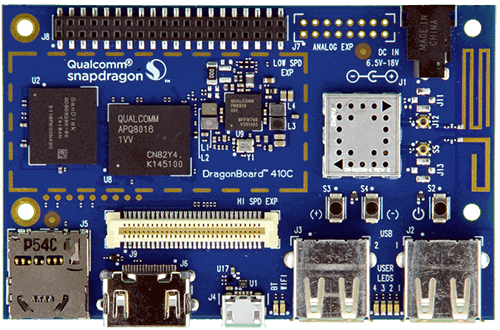
Canonical chooses Linux-friendly Dragonboard 410c as Ubuntu Core on ARM 64-bit reference
Linux is such a wonderful kernel for many reasons, but I find its adaptability to be the tops. You can get an operating system based on the kernel running on such a broad range of hardware -- something Microsoft can only dream about with its venerable Windows.
Even though Linux can run on damn-near anything, it is beneficial for developers to have a reference platform to use for creating. Of course, they can always expand from that jumping point. Today, Canonical announces that the Dragonboard 410c hardware will be the reference platform for Ubuntu Core on ARM 64-bit.
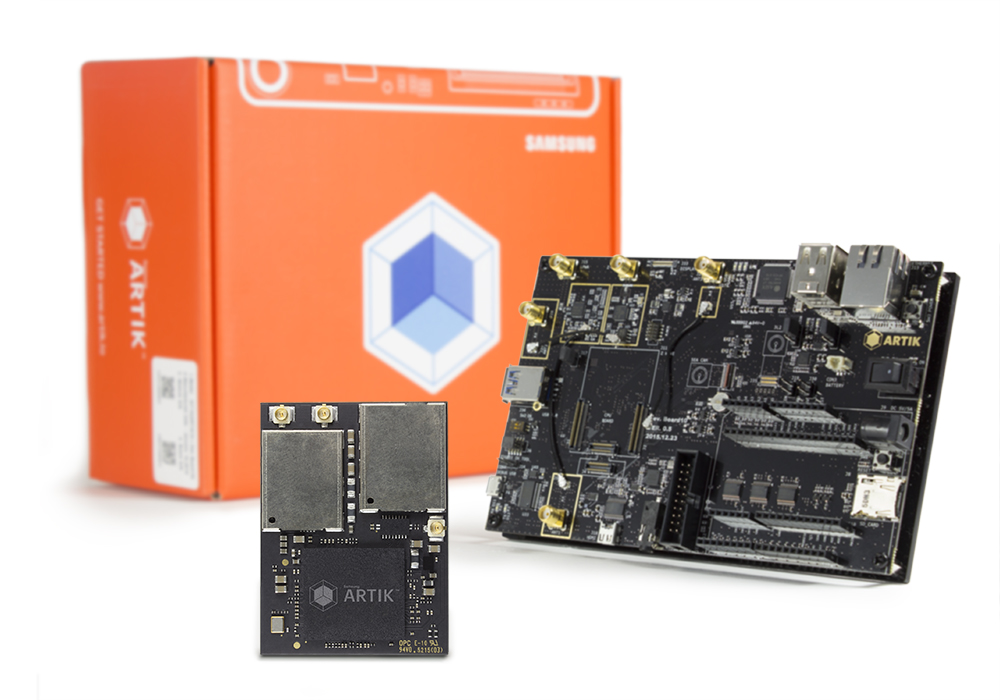
Canonical to release Snappy Ubuntu Core Linux image for Samsung ARTIK IoT platform
Ah, Linux. What can't the open source kernel do? For many projects, operating systems based on it have proven remarkably adaptable -- being made to work with countless hardware configurations. While Windows may remain king of the desktop -- for now -- Linux has its fingers in many pies for which Microsoft's offering is just too bloated. It remains to be seen if Windows 10 IoT will be embraced.
Today, Canonical announces that it will be releasing an Ubuntu Core image for Samsung's IoT-focused ARTIK platform (5 and 10 modules). What does this mean? Well, developers can now leverage one of the most popular Linux distributions on this hardware. This creates amazing potential for ARTIK.
